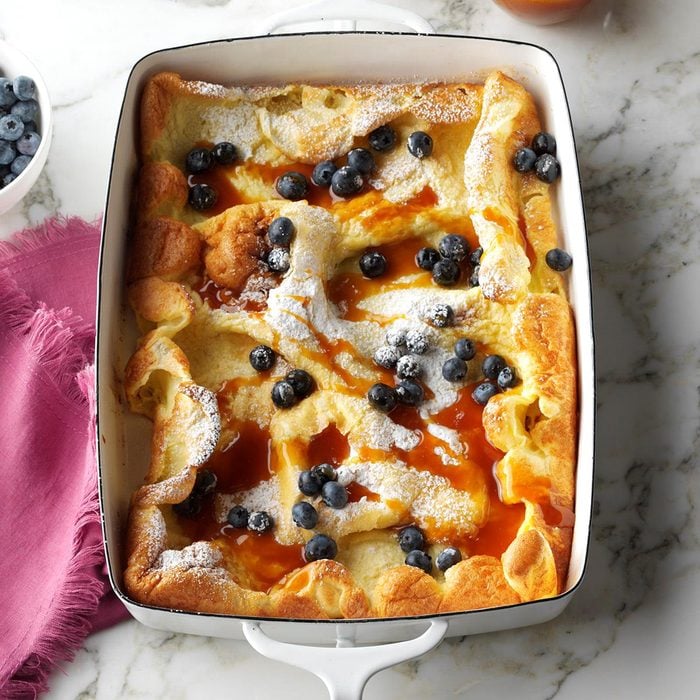German pancakes are a fun, easy way to get a show-stopping breakfast on the table—and they can be made with either sweet or savory toppings, so they’re adaptable!
Also known as Dutch baby pancakes, German pancakes are similar to popovers or Yorkshire puddings because of their eggy batter that cooks quickly in the oven, reacting with steam to produce its iconic shape. In our German pancake recipe, we start with a large pancake with tall, browned edges that cascade down into a shallow custard-like center. We then sprinkle the pancake with confectioners’ sugar and top it with fruits and syrup.
German Pancakes Ingredients
- Eggs: The custard-like texture of these pancakes comes from eggs. Eggs bind the pancake ingredients together to create structure.
- All-purpose flour: All-purpose flour adds the perfect amount of structure to these German pancakes.
- Sugar: Sugar adds browning power and sweetness to the pancakes and buttermilk syrup.
- Buttermilk: Buttermilk adds a creamy and slightly tangy flavor to the buttermilk syrup.
- Corn syrup: The buttermilk syrup in this recipe calls upon corn syrup to help sweeten and thicken it.
- Confectioners’ sugar: A dusting of confectioners’ sugar adds a touch of sweetness and a beautiful, finished look.
Directions
Step 1: Make the pancake batter
Preheat the oven to 400°F. Place the eggs, milk, flour and salt in a blender. Process just until smooth.
Step 2: Bake the German pancake
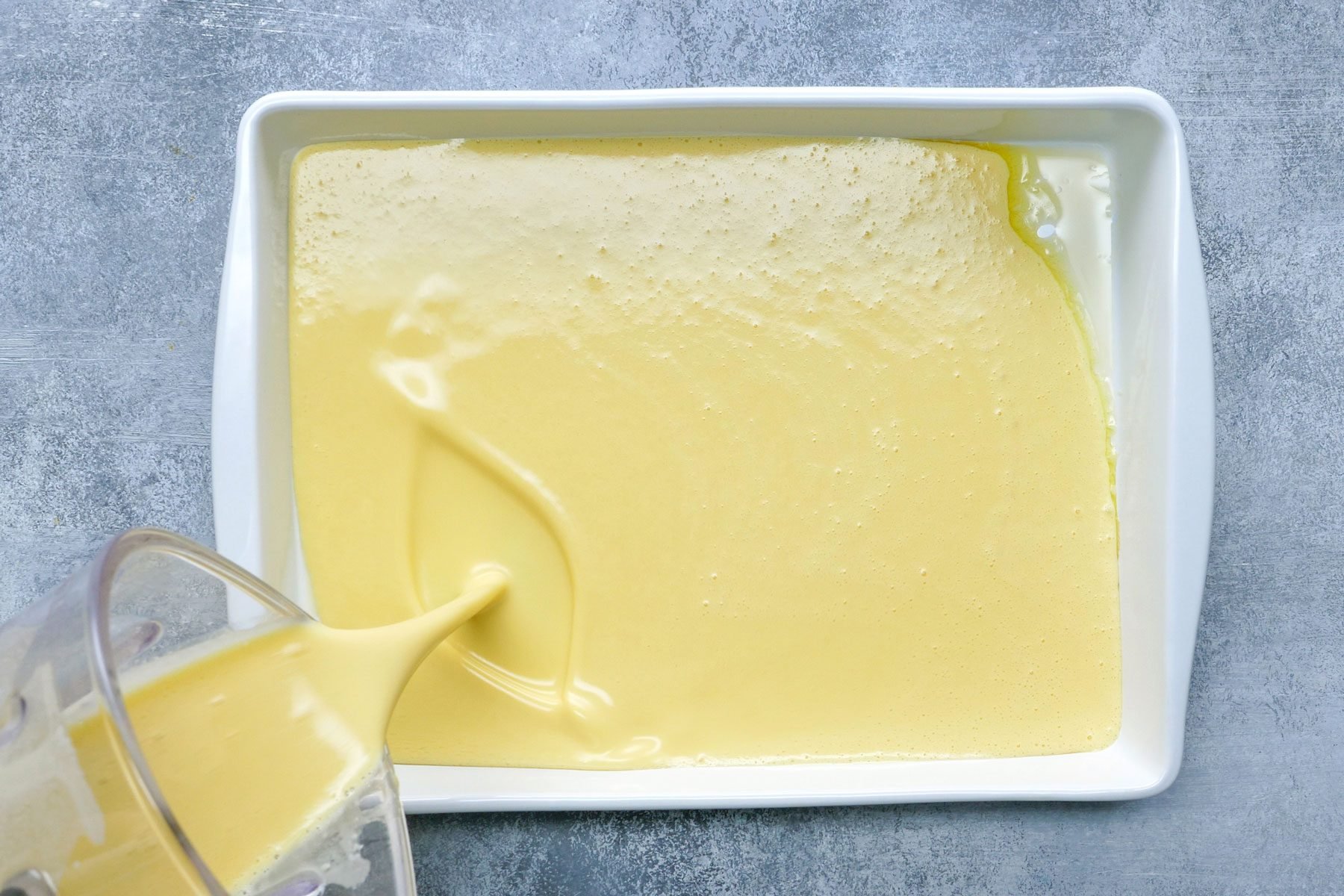
Pour melted butter into a 13×9-inch baking dish, and tilt the dish to coat it with the butter. Add the batter to the baking dish. Bake, uncovered, until the pancake is puffed and golden brown, about 20 minutes.
Step 3: Create the buttermilk syrup
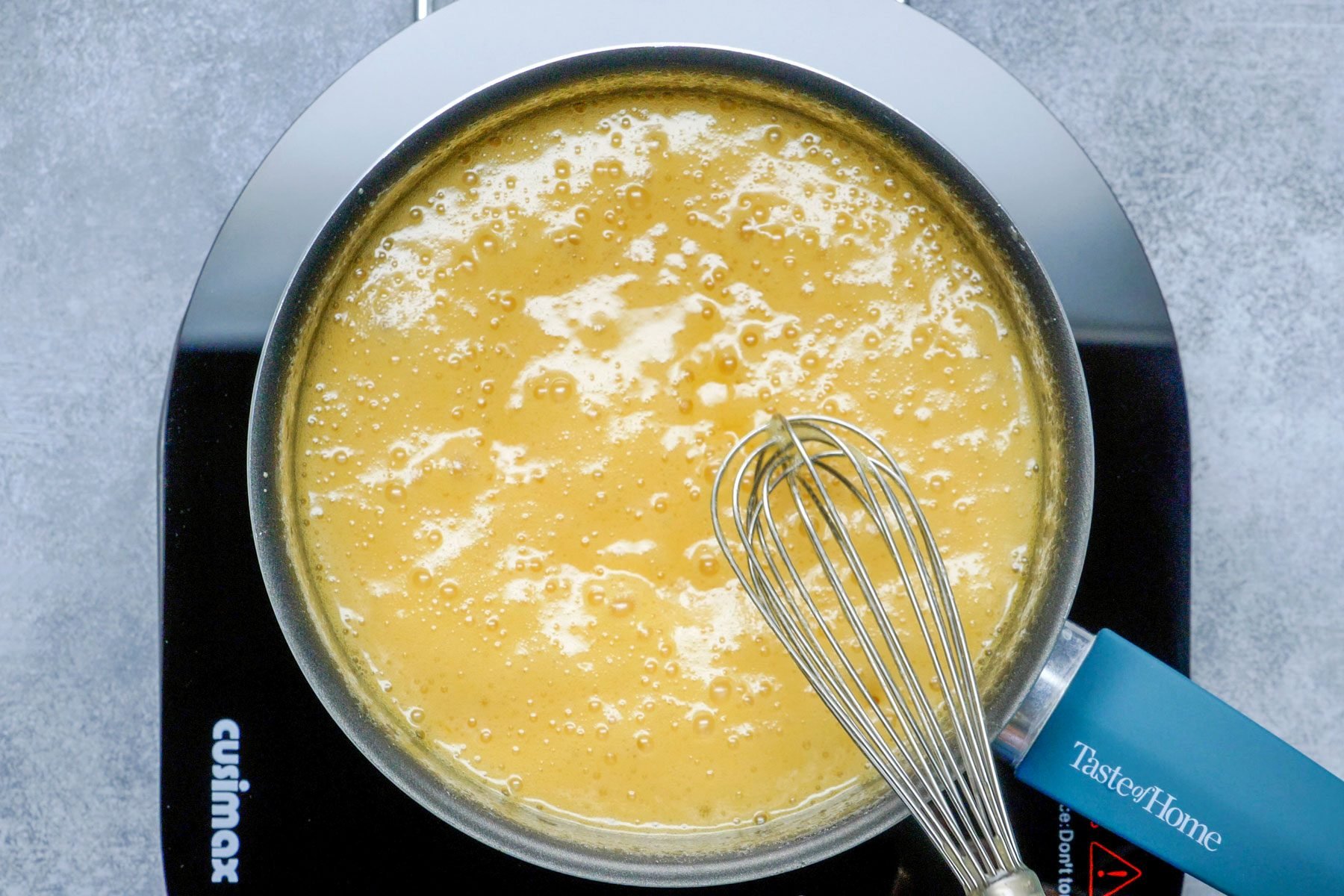
Meanwhile, place the butter, sugar, buttermilk, corn syrup and baking soda in a small saucepan, and stir until combined. Bring mixture to a boil.
Step 4: Boil until dark and thickened
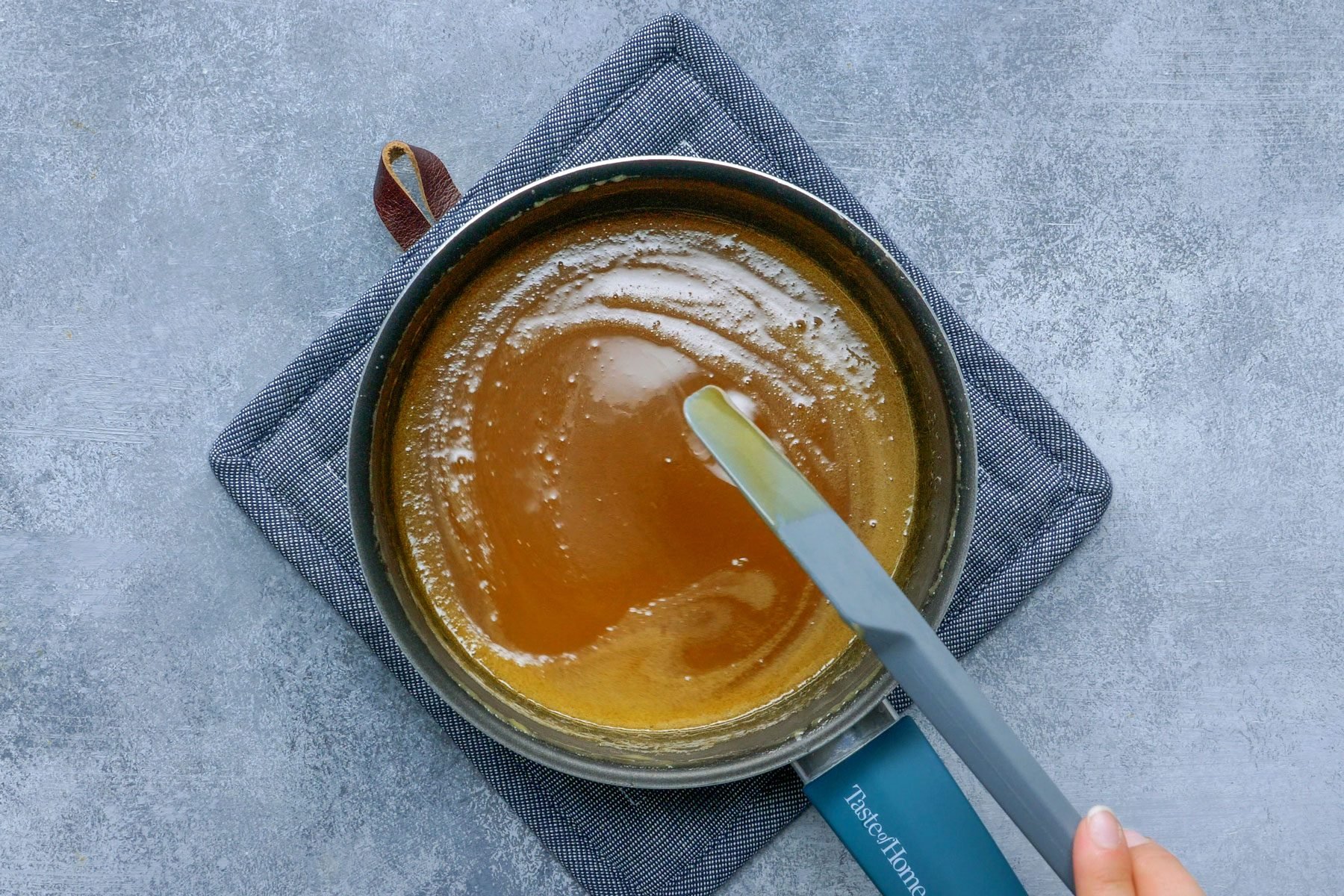
Cook, uncovered, for seven minutes. Remove saucepan from the heat, and stir in the vanilla.
Step 5: Add the toppings
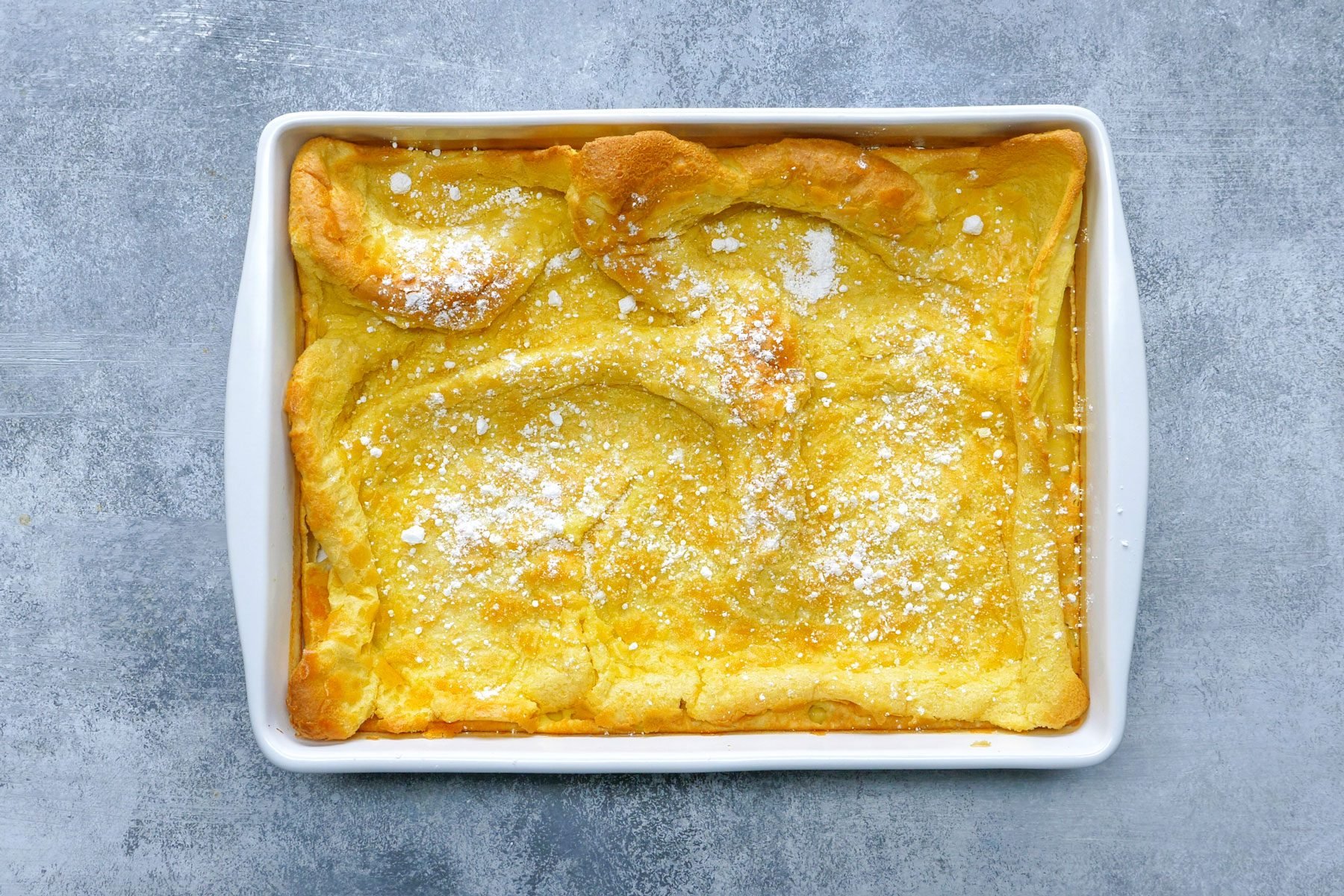
Remove the German pancake from oven. Dust it with confectioners’ sugar. Serve immediately with buttermilk syrup and, if desired, fresh blueberries.
German Pancakes Variations
- Dollop of whipped cream: Whip up a batch of sweetened whipped cream for a lovely, airy topping.
- A mix of fresh fruit: The blueberries in this German pancake recipe are great, but you could also use strawberries, blackberries, bananas and raspberries for a mix of sweet and tart fruits.
- Warm apple topping: Cook up a warm apple topping with thinly sliced apples, butter, sugar and cinnamon for a mixture reminiscent of autumn.
- Make it savory: If you’re in the mood for something savory, omit the sweet toppings from this German pancake recipe and instead use roasted vegetables, scallions, cheese, bacon, chives or fried eggs. Or simply make our savory Dutch baby!
How to Store German Pancakes
To store German pancakes, allow them to cool to room temperature. Place the pancakes in an airtight container, and store them in the fridge for up to three days. Gently reheat in the microwave until warmed through, 30 to 60 seconds, or in a 350° oven until warmed through, 10 to 15 minutes.
Can you freeze German pancakes?
Yes, you can freeze German pancakes. Allow the pancakes to cool to room temperature, then individually wrap each pancake in storage wrap. Place wrapped pancakes in an airtight container, and store in the freezer for up to three months.
To reheat from frozen, unwrap the pancakes, and arrange on a parchment-lined baking sheet. Bake at 350° until warmed through, 10 to 15 minutes.
German Pancakes Tips
What’s the difference between German and American pancakes?
The difference between German and American pancakes is that German pancakes use more eggs than American pancakes and no leavening agent. German pancakes are also baked in a shallow dish (like a roasting pan or cast-iron skillet) while American pancakes are cooked on a griddle. Because of this, German pancakes are thin and shallow with puffy areas, while fluffy pancakes are more classically American.
How did German pancakes get their name?
German pancakes got their name from an American. This American used the batter for real German pancakes (pfannkuchen—one of our most favorite pancakes around the world) and baked the batter in a shallow dish instead of cooking it in a skillet as traditional pfannkuchen would be prepared. The result was a large, singular pfannkuchen that was shallow with tall sides. At first, this American called this oven-baked German pancake “Dutch baby,” but it has come to also be known as “German pancake.”

















